|
|
MÉRIEUX FOUNDATION
A family foundation fighting infectious disease
|
|
|
|
|
Newsletter Issue 6 - Autumn 2020
|
|
|
Editorial
|
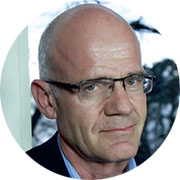
|
|
Although I had the opportunity to follow the Mérieux Foundation's achievements in my former position, I only realized the richness and diversity of its activities when I joined just a few months ago.
|
|
The Foundation has long been involved in strengthening national and regional diagnostics and reinforcing health systems in limited resources countries and it has become a trusted player in the field among several international partners. By developing the research capacities of numerous laboratories in these countries, particularly within the GABRIEL network, it also makes access to innovation easier and facilitates the implementation of research programs regarding local public health priorities.
|
|
We are experiencing this year an unprecedented crisis linked to the SARS-CoV-2 pandemic which, beyond its health dimension, has dramatic economic consequences, particularly in the most disadvantaged countries. It is in this context that the Mérieux Foundation's actions are more than ever in line with Charles Mérieux's initial vision: to help the countries where the Foundation is present meet the major challenges related to infectious diseases and maternal and child health, and propose lasting, high-impact solutions for the benefit of the most vulnerable.
|
|
Despite the logistical challenges related to the health crisis, the Foundation quickly took action to help these countries deal with the threat of COVID-19. Some of the actions described in this newsletter illustrate the relevance of the actions carried out by the Foundation for over 50 years.
|
|
Enjoy your reading!
|
|
Marc BONNEVILLE
Medical and Scientific Director
|
|
|
|
News |

|
|
Here are the main events in recent months.
|
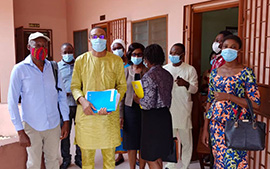
PROJECT
The REDISSE project for disease surveillance system reinforcement in ECOWAS countries starts its second phase
October 28, 2020 - West Africa
The Mérieux Foundation starts its mandate’s second phase as part of the disease surveillance systems reinforcement in ECOWAS countries project (REDISSE) aiming at supporting five other West African countries.
|
|
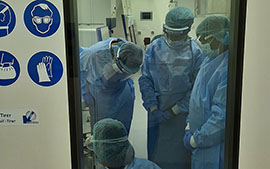
Rodolphe MÉrieux Laboratory
Training at the Rodolphe Mérieux Laboratory in Goma, a key player in the fight against COVID-19 in the DRC
25 September 25, 2020 - DRC
The team at the Rodolphe Mérieux Laboratory of the National Institute of Biomedical Research (INRB) in Goma, and staff from the INRB in Kinshasa, received training on diagnostic testing, including COVID-19.
|
|
|
|
|
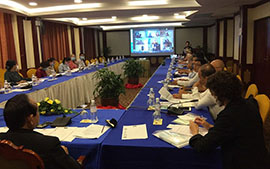
ProjeCt
SEALAB project kicks off in Cambodia to strengthen laboratory systems in Southeast Asia
August 18, 2020 – Cambodia
SEALAB, a project launched to strengthen laboratory networks in Southeast Asia, was initiated in Cambodia during the first steering committee meeting.
|
|
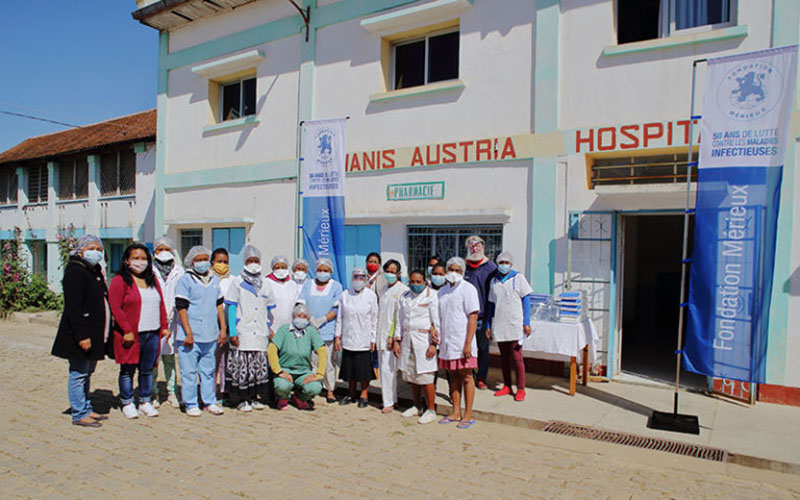
ProjeCt
Fight against COVID-19: supporting the Akamasoa association and OSCAPE in Madagascar
August 13, 2020 - Antananarivo (Madagascar)
The Mérieux Foundation in Madagascar acts alongside two partner organizations - the Akamasoa association and OSCAPE - to fight against the COVID-19 epidemic.
|
|
|
|
|
Les Pensières Center for Global Health |

|
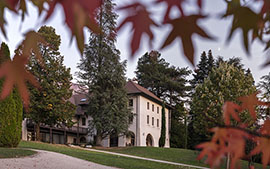
Announcement
Les Pensières Center for Global Health closes its doors with newly renovated main conference room
October 28, 2020 - Centre des Pensières, Veyrier-du-Lac (France)
Faced with the acceleration of the COVID-19 epidemic and following government measures, Les Pensières Center for Global Health is adapting to ensure the health and safety of its teams and partners. Dr. Charles Mérieux's room, the main conference room, has been refurbished and equipped with the latest technologies to increasingly facilitate knowledge sharing and cooperation between public health actors, across borders.
|
|

Events
Let’s take a look back on the ACDx webinar on the critical role of diagnostics in the COVID-19 pandemic
October 2, 2020 – Online
What is the role of diagnostics in the management of the COVID-19 sanitary crisis around the world? What are the strategies and initiatives we need to learn from to tackle this pandemic? A webinar, co-organized by the Mérieux Foundation and the London School of Hygiene and Tropical Medicine (LSHTM) on September 15, offered to answer these questions with an overview of the role of diagnostics in the COVID-19 crisis management from four regional perspectives.
|
|
|
|
|
|
|
Focus COVID-19
|

|
|
In the fight against infectious diseases, the Mérieux Foundation has always worked as closely as possible with local partners in the field. From the first COVID-19 epidemic alerts, the foundation took action to provide aid adapted to the low-income countries where it works.
|
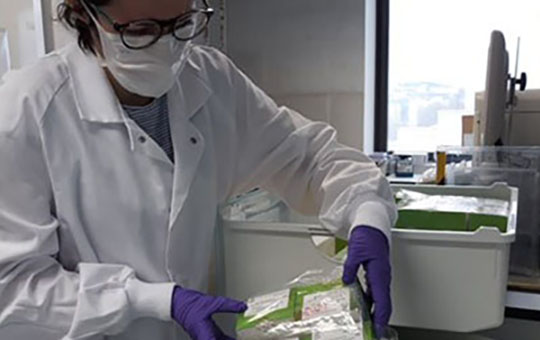
|
|
First reported on December 31, 2019 in Wuhan, China, the Coronavirus disease 2019 (COVID-19) rapidly reached global epidemic proportions and destabilized some of the world’s most robust health systems. True to its commitment to public health in developing countries, the Mérieux Foundation, with its partners, mobilized resources to respond to the crisis. The foundation has made the fight against COVID-19 a priority, by massively dispatching diagnostic tests, launching or expanding projects and supporting local health authorities.
|
|
|
|
|
|
|
3 questions À...
|

|
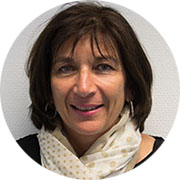
Florence PRADEL
GABRIEL network manager
|
|
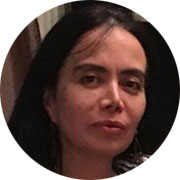
Valentina PICOT
Clinical research manager
|
|
|
|
|
|
To support the countries where it operates, the Mérieux Foundation acted from the first signs of the COVID-19 epidemic. What actions have been carried out as a priority?
Florence Pradel : In January 2020, the Mérieux Foundation began providing support for the diagnostics of COVID-19 to its partner laboratories located in countries with limited resources.
|
|
In the absence of commercial kits, we chose two different options to meet the demand: a kit developed by the Christophe Mérieux Laboratory in Bejing and a kit developed by the Charité Laboratory in Germany, with the support of EVAG which provided the positive controls for the tests.
|
|
At the same time we wrote all the standard operating procedures (SOPs) corresponding to the different stages of the diagnostic test and we organized videoconference meetings with the different sites to present these SOPs and answer questions.
|
|
Valentina Picot : In addition to strengthening diagnostics, we felt it was important to launch parallel research studies, particularly related to the transmission patterns of SARS-CoV-2 in hospital settings, in order to address a number of questions regarding this subject.
|
In partnership with the Hospices Civils de Lyon (HCL), we therefore developed a research protocol: a prospective, non-interventional - observational, hospital-based study called NOSO-COR, and we offered it to the research units of our networks in seven countries in the field as well as to eight university hospitals in France. |
|
How did this emergency mobilization take place in a complex international context?
Florence Pradel : During these months of intense work, we faced moments of great solitude when, for example, we had to solve logistical problems for which we were not trained. Borders and international flights gradually closed and countries were confined according to different schedules.
|
|
We had to quickly find solutions to allow the delivery of the kits to our partner countries and we learned a lot about all these aspects that we did not understand.
|
|
Valentina Picot : To develop the NOSO-COR protocol, it was necessary to mobilize the teams in the field, register the study, and have it approved by the Ethics Committee in France and in the participating countries. All these steps represent long and complex processes, particularly in crisis situations such as the COVID-19 pandemic. Despite closed borders and containment in many countries, we wanted to launch the protocol before the epidemic worsened. We had to double our efforts and were able to count on the incredible mobilization and support of several our local partners to sustain the project and ensure its implementation despite the difficult context.
|
|
What are the results of these operations?
Florence Pradel : We were able to strengthen diagnostic capacities of 13 countries in Southeast Asia, Africa, South America and the Caribbean, at a time when the health crisis had particularly accelerated and when diagnostic tests, an indispensable tool for controlling the epidemic, were lacking at international level.
|
To date, we have therefore carried out 24 shipments to 13 countries, corresponding to:
- 60 extraction kits (i.e. 15,000 sample extractions)
- 133 RT-PCR kits (enabling more than 10,000 tests to be performed), as well as primers and probes for the equivalent of 17,000 tests.
|
|
This initial need is now much less important, so our team is now mainly dedicated to the organization of external quality controls for the Rodolphe Mérieux Laboratories, which are very active at the national level in the diagnostic of COVID-19.
|
|
Valentina Picot : In early March 2020, the study was gradually launched in the various target countries and is now being conducted in seven different sites (4 in Africa, 1 in the Middle East, 1 in Asia and 1 in Latin America).
|
|
With the data that will be generated by this multi-center study, we will be able to better understand the prevalence of the disease in the participating sites and more particularly the chains of transmission, but also to evaluate the impact of the different prevention measures implemented in hospital environments.
|
|
These data will prove valuable for the health crisis we are currently experiencing, but also more broadly for infection control in hospitals.
|
|
|
|
|
In brief
|
|
Here are some of our actions and major projects worldwide.
|
|
|
Global
Octobre 26, 2020
"Association of baseline white blood cell counts with tuberculosis treatment outcome: a prospective multicentered cohort study": the results of the HINTT project published in the International Journal of Infectious Disease the International Journal of Infectious Diseases
|
|
|
|
|
|
|
Global
July 20, 2020
The Mérieux Foundation, FIND, ASLM and LSHTM released a MOOC - Massive Open Online Classroom - in French and English, on Diagnostics and Testing for COVID-19.
|
|
|
|
|
|
|
France
July 15, 2020
The Mérieux Foundation’s 2019 annual report is available! As every year, it gives an overview of the projects carried out in the field to fight against infectious diseases and improve the living conditions of vulnerable populations, in resource-limited countries.
|
|
|
|
|
|
|
South Africa
June 2020
On May 20, 2020, Prof. Quarraisha Abdool Karim, CAPRISA’s Scientific Director in South Africa, was awarded the 2020 Christophe Mérieux Prize, bestowed by the Fondation Christophe et Rodolphe Mérieux of the Institut de France, for her work on HIV prevention and treatment in women.
|
|
|
|
|
|
|
OUR projeCts |

|
|
Here are three projects implemented by the Mérieux Foundation.
|
|
|
LABOGUI
The LABOGUI project is designed to strengthen 30 Guinean laboratories and renovate the National School of Health.
|
|
|
|
|
|
|
APRECIT
Evaluation of strategies to improve the screening and overall management of latent tuberculosis infection in Cameroon and Madagascar
|
|
|
|
|
|
|
Kit WASH
Preventing the spread of infectious diseases by teaching children about good hygiene.
|
|
|
|
|
|
|
Upcoming events
|

|
|
October 12 -
December 22
2020
|
|
|
|
|
|
|
October 30 -
November 3
2020
|
|
|
|
|
|
|
|
|
|
|
|